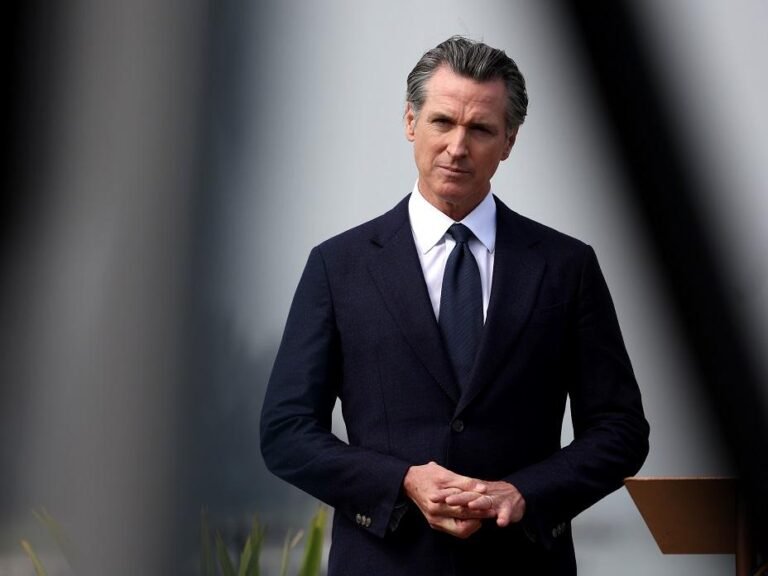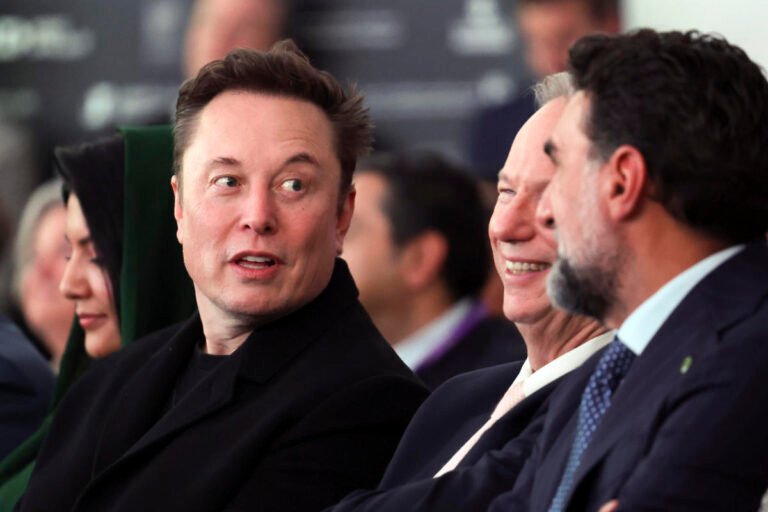“He who saves his Country does not violate any Law,” Trump claimed in a social media post, now pinned atop his profile.
Trump has dramatically reimagined the scope of his executive power at the start of his second term, issuing scores of executive actions. The efforts have been bolstered by the administration’s implicit confidence in its capacity to defend itself from legal challenges as Trump, in part, sought to remake the judiciary during his first term.
Still, Trump’s extraordinary attempts to expand the power of the executive branch have hit legal roadblocks in recent days. Dozens of court cases have swiftly challenged Trump’s policies and prompted judges to put on hold some of the implementation to determine whether the moves are legal. The lawsuits include challenges to stopping federal foreign aid, firing federal workers, ending government programs, and even closing agencies altogether.
Trump’s Saturday social media post is likely to have echoes in court — and government attorneys defending his policy decisions against more than 60 lawsuits are arguing to protect and expand executive power.
The court cases so far have prompted lawyers from the Justice Department to argue that Trump’s power as president shouldn’t be limited within the executive branch and shouldn’t be tied up in the federal judiciary, especially as he makes decisions around the federal workforce and spending. Several of the cases have set up the Trump administration to attempt to strike down congressional authority, especially over spending and mechanisms that Congress put in place in the past to check the executive’s authority.
Some of the cases prime the Trump administration for an explicit clash with Congress’ appropriation power, and many look at the Constitution’s outlines for the office of the president.
One fast-moving, early notable case is about the president’s power over an independent watchdog for federal workers, called the Office of Special Counsel. Trump fired that official weeks ago, only to have a court reinstate him quickly. On Sunday, the Trump administration pushed the case to the Supreme Court for emergency review. It becomes the first dispute before the justices for this administration to test the boundaries of executive power.
The swift pace of firings appears designed to force the Supreme Court’s hand, in the same way, Trump appears eager to challenge other long-standing legal norms such as birthright citizenship and the president’s power to pause spending.
Acting Solicitor General Sarah Harris on Wednesday told Senate Democrats the Justice Department “intends to urge the Supreme Court to overrule” a 1935 precedent that allows Congress to create protections for certain federal officials so they cannot be fired without cause. In the Trump administration’s view, those protections prevent “the president from adequately supervising principal officers in the executive branch who execute the laws on the president’s behalf.”
In a letter to Illinois Sen. Dick Durbin, the top Democrat on the Senate Judiciary Committee, Harris wrote that her office would no longer defend the constitutionality of for-cause removal provisions for the Federal Trade Commission, the National Labor Relations Board and the Consumer Product Safety Commission.
“The department,” Harris wrote, “has concluded that those tenure protections are unconstitutional.”
Hampton Dellinger, the government’s special counsel, is one of several independent officials who are fighting dismissal by the White House. In a lawsuit filed in federal court in Washington, DC, last week, Dellinger pointed to the 1935 decision in Humphrey’s Executor v. United States as a “binding Supreme Court precedent” that he asserted should bar his firing by the president.
Trump’s most recent significant test of executive authority, of course, was in his criminal January 6, 2021, case, where he sought and earned from the high court immunity from prosecution for official actions taken while in office.
“The president is not above the law,” Chief Justice John Roberts wrote in that decision. “But Congress may not criminalize the president’s conduct in carrying out the responsibilities of the executive branch under the Constitution.”
The quote posted by Trump nearly matches one that appeared in a 1970 movie about French emperor and military leader Napoleon Bonaparte, whose ambitions included attempts to expand French territory. Trump has indicated a desire to annex Canada and Greenland.
“President Trump has raised an issue that is as old as the republic: Does the president have the authority to disregard a law if necessary to respond to a threat to the nation’s security?” conservative attorney John Yoo, an advocate of exploring the boundaries of presidential power, told CNN.
“The question is, even if such a prerogative power exists, whether the circumstances today are so dire that justify its use. I don’t think so, but the president has access to greater information, much of it secret or classified, than the public does. I tend to think that President Trump, as he often does, is raising the question even though he does not intend to go this far,” he said.
The president’s post prompted muted blowback from some key Democratic lawmakers, even as the Democratic Party has struggled to land unified messaging in the wake of Trump’s 2024 victory.
“Spoken like a true dictator,” Sen. Adam Schiff of California, a member of the Senate Judiciary Committee, wrote alongside Trump’s post.
Sen. Amy Klobuchar, a Minnesota Democrat who is also a member of that committee, offered a more resigned take on the Trump administration’s latest actions, including last week’s resignation of the top prosecutor in Manhattan and other senior officials over the Justice Department’s order to halt the prosecution of New York City Mayor Eric Adams on corruption charges.
“This is just another day in the Trump administration. Costs are up. Chaos is up, and yes, corruption is up. They have taken the mayor of New York City, who was facing and is facing serious charges of bribery, which were going to be expanded, and they have turned him into their political pawn,” Klobuchar told CNN’s Dana Bash on “State of the Union” on Sunday.
CNN’s John Fritze contributed to this report.














